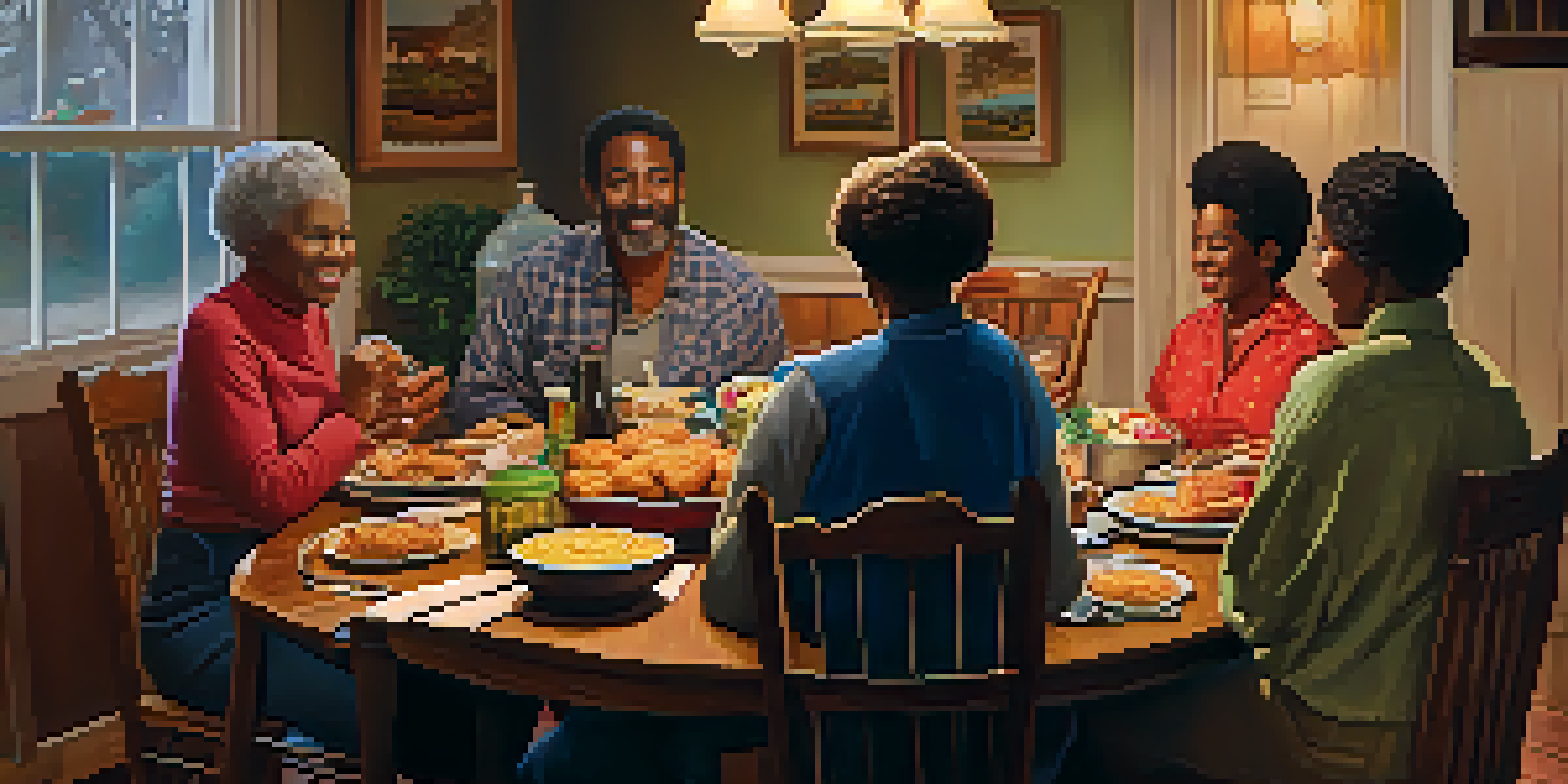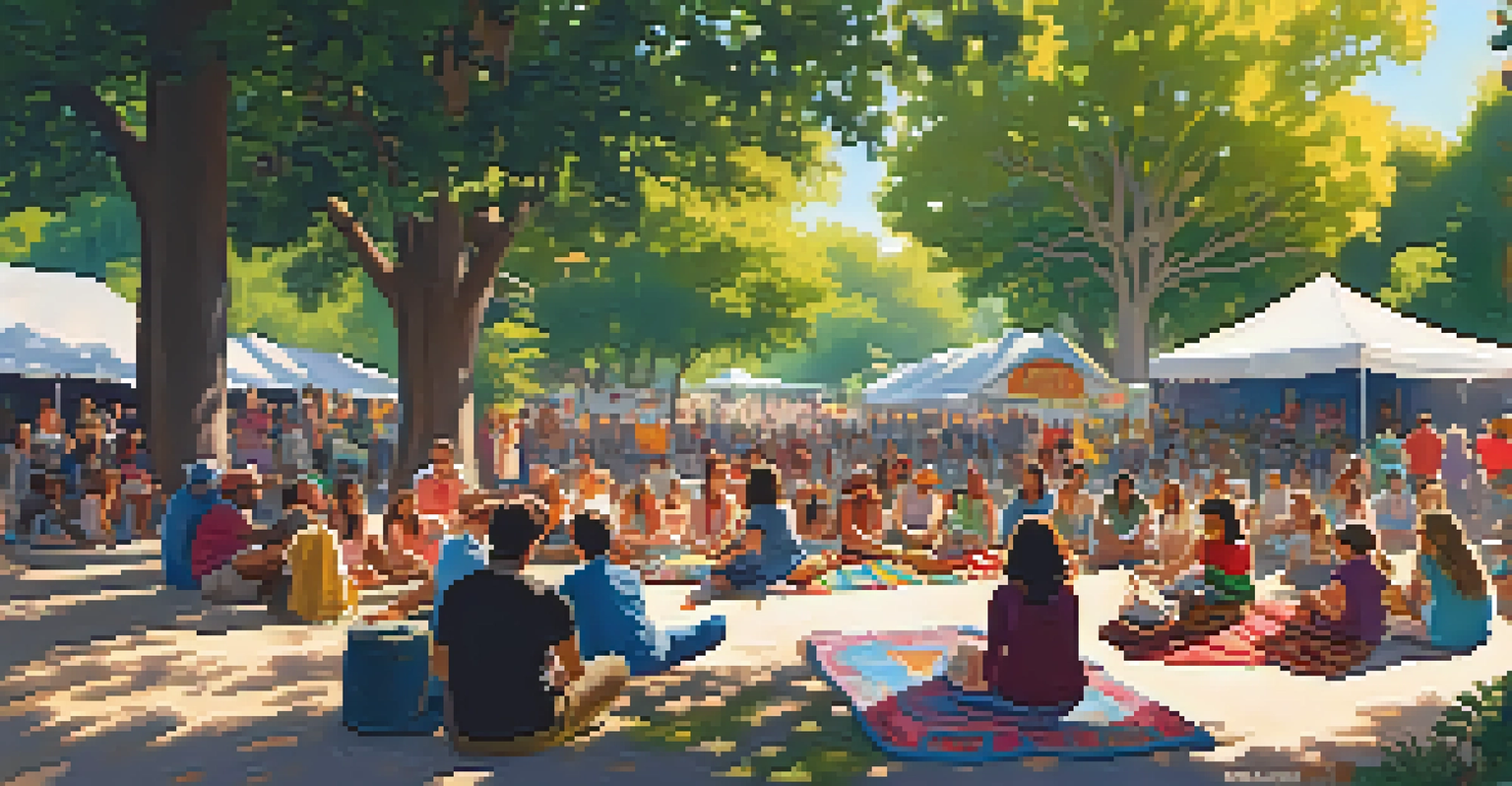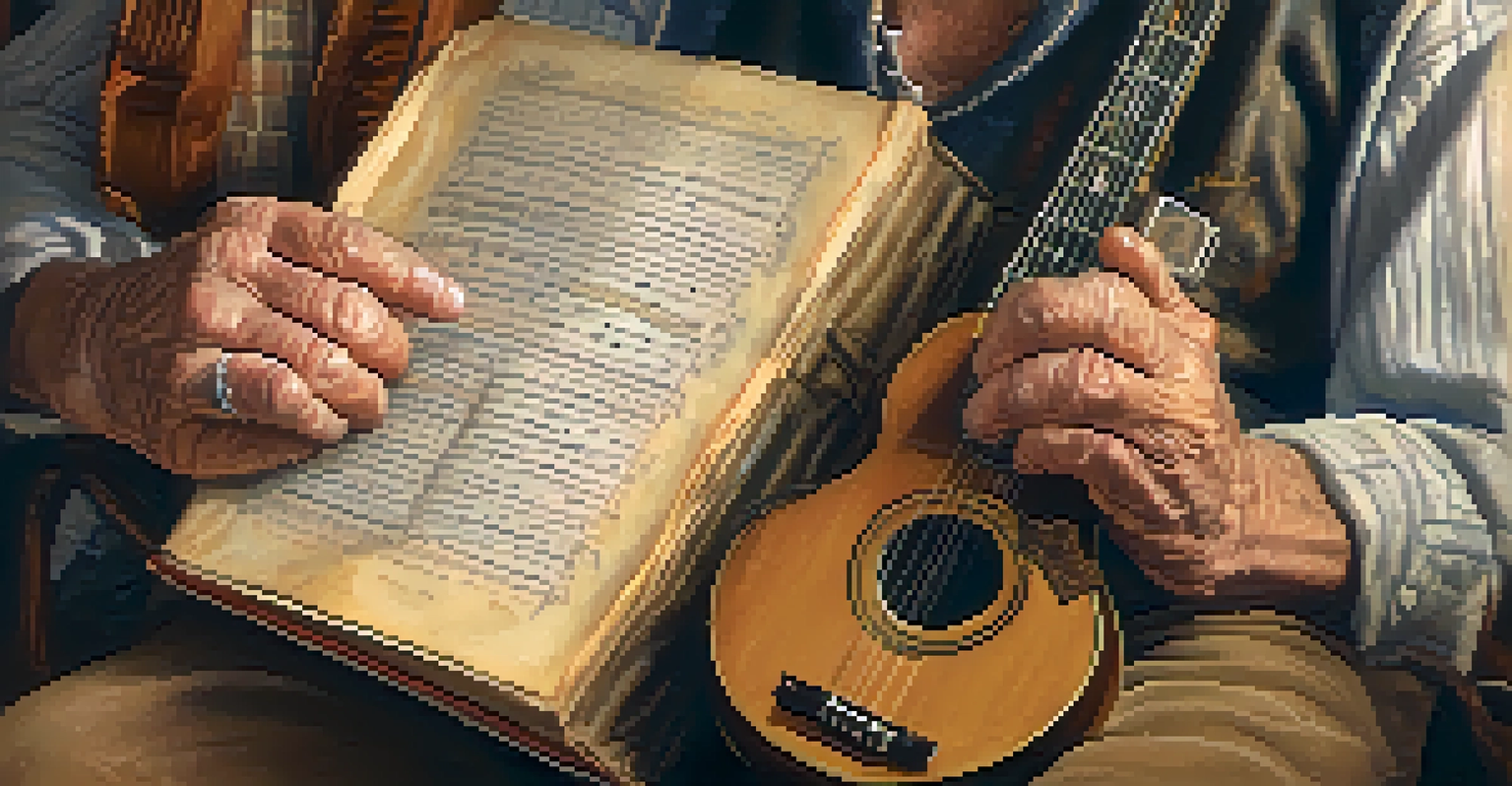The Role of Storytelling in Southern Cultural Heritage

Understanding Southern Storytelling Traditions
Southern storytelling is a rich tapestry woven from diverse cultural threads, including African, Native American, and European influences. These stories often reflect the values, struggles, and triumphs of Southern communities, making them essential for understanding the region's identity. They serve as a means of passing down wisdom through generations, often with a touch of humor and warmth that resonates with listeners.
Storytelling is the most powerful way to put ideas into the world today.
In many Southern households, storytelling is a cherished ritual, often taking place around the dinner table or during family gatherings. Elders share tales that span decades, connecting younger generations to their ancestors' experiences. This oral tradition not only entertains but also reinforces familial bonds and cultural pride.
Moreover, storytelling in the South often involves a unique blend of music, rhythm, and language that captures the listener's imagination. Whether through folk tales, ballads, or personal anecdotes, these narratives bring the past to life, allowing individuals to experience history in a deeply personal way.
The Role of Folklore in Southern Culture
Folklore plays a pivotal role in Southern storytelling, encompassing myths, legends, and folklore that shape community identities. These stories often reflect moral lessons, community values, and historical events that are pivotal to understanding the Southern experience. Folklore not only entertains but educates, offering insights into the region's social norms and beliefs.

For instance, tales of figures like Br'er Rabbit and Uncle Remus illustrate the cleverness and resilience of oppressed communities. Such stories are not just for entertainment; they provide a voice to those who may have felt marginalized, weaving their experiences into the broader cultural narrative. This blending of humor and morality ensures these stories resonate across generations.
Cultural Identity Through Storytelling
Southern storytelling weaves together diverse cultural influences, serving as a vital means of preserving community identity and values.
The preservation of folklore is crucial, as it offers a glimpse into the South's multifaceted identity. As these stories are shared, they evolve, reflecting contemporary issues while remaining rooted in tradition. This dynamic process ensures that folklore remains relevant, bridging the gap between the past and present.
Storytelling as a Tool for Cultural Preservation
In the South, storytelling goes beyond mere entertainment; it serves as a vital tool for cultural preservation. Through narratives, communities can maintain their unique identities amidst the influences of modernization and globalization. This preservation is essential in keeping traditions alive, ensuring that future generations understand their cultural heritage.
We are the stories we tell ourselves.
Many Southern communities host storytelling festivals and events that celebrate this rich tradition. These gatherings not only showcase local talent but also encourage the sharing of diverse narratives, reinforcing the importance of cultural diversity. In this way, storytelling becomes a communal activity that strengthens social ties and fosters a sense of belonging.
Additionally, storytelling can address contemporary social issues, providing a platform for dialogue and reflection. By weaving current experiences into traditional narratives, storytellers can challenge stereotypes and promote understanding, making cultural preservation a living, breathing practice.
The Emotional Impact of Southern Stories
Southern stories often evoke deep emotional responses, tapping into universal human experiences such as love, loss, and resilience. This emotional connection is what makes storytelling so powerful; it allows listeners to see themselves in the narratives and fosters empathy across diverse backgrounds. The shared experience of storytelling creates a sense of community, even among strangers.
For example, a story about overcoming adversity can inspire hope and motivate listeners to persevere in their own lives. This emotional resonance is a hallmark of Southern storytelling, where personal experiences are transformed into collective wisdom. Through laughter and tears, stories facilitate healing and understanding, making them integral to the Southern experience.
Music Enhances Southern Narratives
The integration of music in storytelling enriches the emotional experience, allowing for deeper connections with narratives that reflect Southern life.
Moreover, the emotional depth of these stories often reflects the complexities of Southern history, including themes of struggle, triumph, and redemption. By engaging with these narratives, individuals can confront uncomfortable aspects of history while finding solace in shared experiences, ultimately fostering a greater sense of unity.
The Influence of Music in Southern Storytelling
Music and storytelling are deeply intertwined in Southern culture, with many stories delivered through song. This musical element enhances the narrative, adding layers of emotion and rhythm that captivate audiences. From folk ballads to blues, the melodies often serve as a backdrop for tales that celebrate love, loss, and the everyday lives of Southern people.
For instance, many country and blues songs tell stories that resonate with listeners' experiences, often reflecting the hardships and joys of Southern life. This synergy between music and storytelling creates a rich auditory experience, allowing individuals to connect with the narrative on multiple levels. It also provides a way for stories to spread beyond local communities, reaching broader audiences through recordings and performances.
Additionally, the improvisational nature of Southern music allows storytellers to adapt their narratives in real-time, making each performance unique. This fluidity keeps the art of storytelling alive, ensuring it evolves with the times while honoring its roots. As a result, the musical aspect of storytelling not only entertains but also reinforces cultural identity.
Challenges Facing Southern Storytelling Today
Despite its rich heritage, Southern storytelling faces several challenges in the modern world. The rise of digital media and changing social dynamics have altered the way stories are shared and consumed. While technology can enhance storytelling, it can also dilute the intimate experience of oral traditions, making it harder for individuals to connect with one another.
Moreover, as communities become more diverse, there is a growing concern about the marginalization of certain narratives. It's essential to ensure that all voices are heard in the storytelling landscape, promoting inclusivity and representation. This challenge requires a conscious effort from both storytellers and audiences to embrace a variety of perspectives.
Modern Challenges for Storytelling
As digital media rises, Southern storytelling faces challenges such as the dilution of oral traditions and the need for inclusivity in diverse narratives.
Finally, the commercialization of storytelling can sometimes overshadow its cultural significance. As stories are packaged for mass consumption, there's a risk of losing the authenticity and depth that make them special. Striking a balance between preserving tradition and adapting to modern contexts is crucial for the survival of Southern storytelling.
The Future of Storytelling in Southern Culture
Looking ahead, the future of storytelling in Southern culture appears both promising and challenging. As younger generations embrace digital platforms, they are finding innovative ways to share their stories, ensuring that the tradition continues to evolve. This adaptation can lead to new storytelling formats, such as podcasts and social media, which can reach wider audiences while allowing for creative expression.
Moreover, there is a growing movement to preserve and promote diverse narratives that reflect the South's multifaceted identity. By actively seeking out and amplifying underrepresented voices, communities can enrich their storytelling landscape, creating a more inclusive cultural tapestry. This ensures that future generations will inherit a rich array of stories that reflect their diverse experiences.

Ultimately, the future of Southern storytelling will hinge on its ability to adapt while remaining rooted in tradition. By embracing change and fostering inclusivity, storytelling can continue to serve as a vital cultural anchor, connecting individuals to their heritage while inspiring new narratives for the contemporary world.